Find Help
More Items From Ergsy search
-
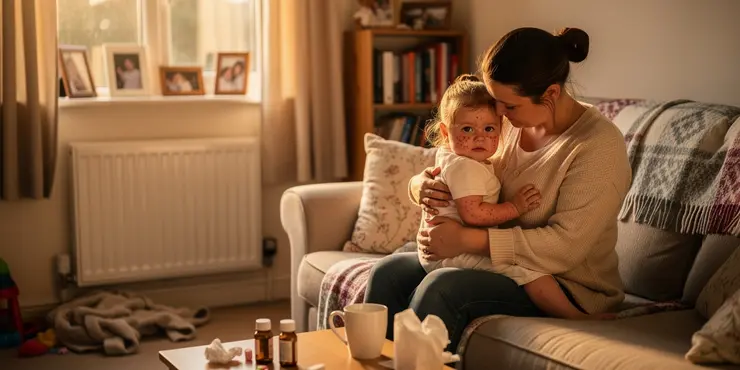
How to Keep a Child With Chickenpox Comfortable
Relevance: 100%
-
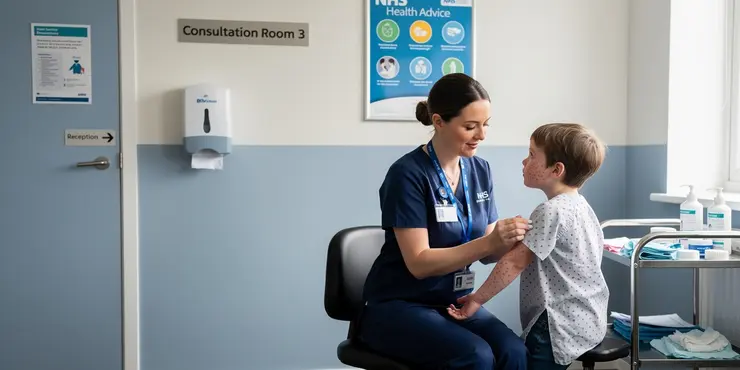
What is the treatment for chickenpox?
Relevance: 50%
-
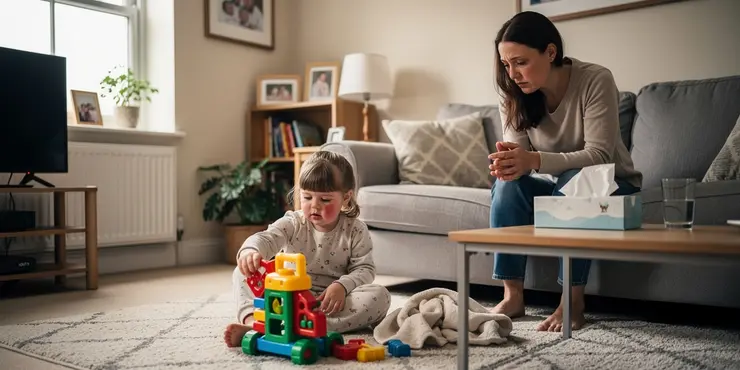
What is Chickenpox?
Relevance: 49%
-
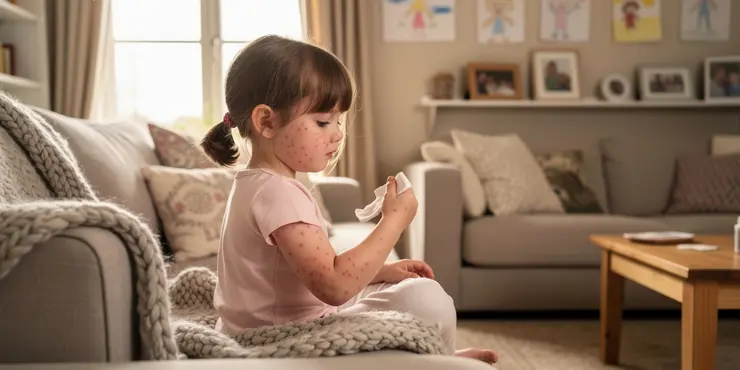
Are there home remedies for chickenpox?
Relevance: 49%
-
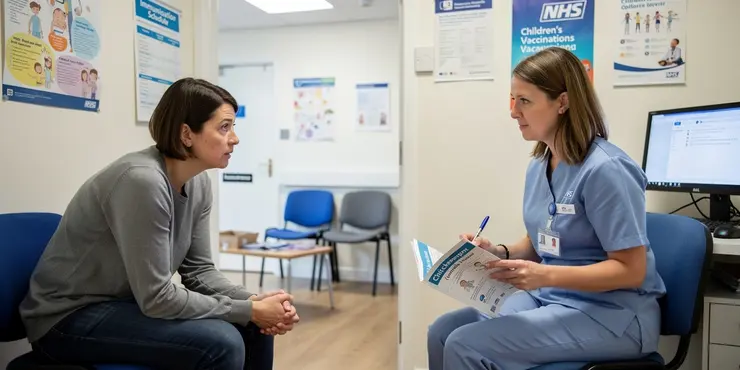
Can chickenpox be prevented?
Relevance: 49%
-
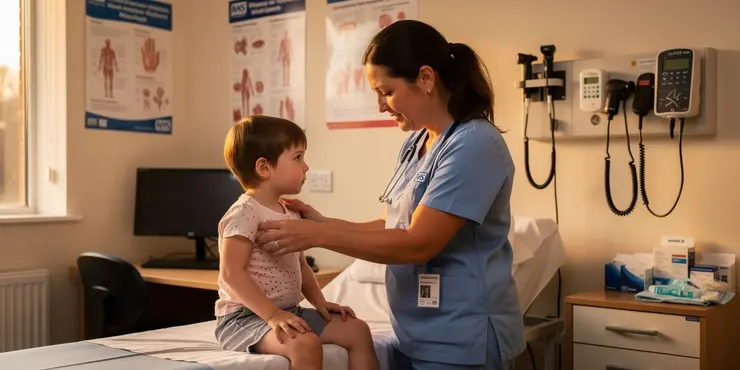
What are the symptoms of chickenpox?
Relevance: 48%
-
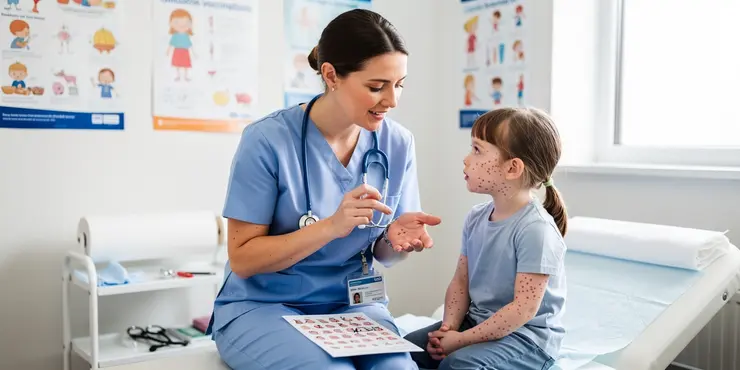
Is chickenpox contagious?
Relevance: 48%
-
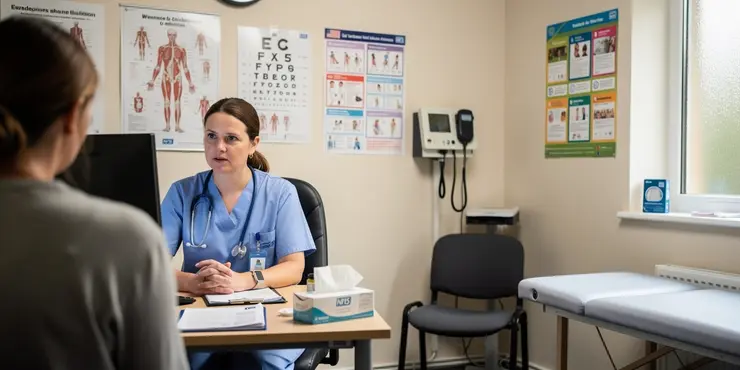
What are the complications of chickenpox?
Relevance: 47%
-
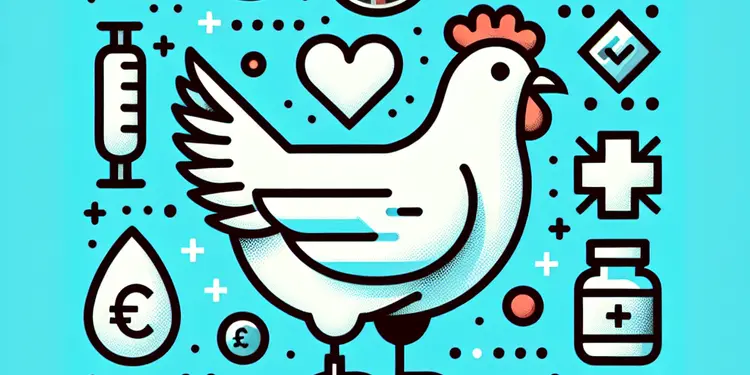
Should I get the chickenpox vaccine?
Relevance: 47%
-
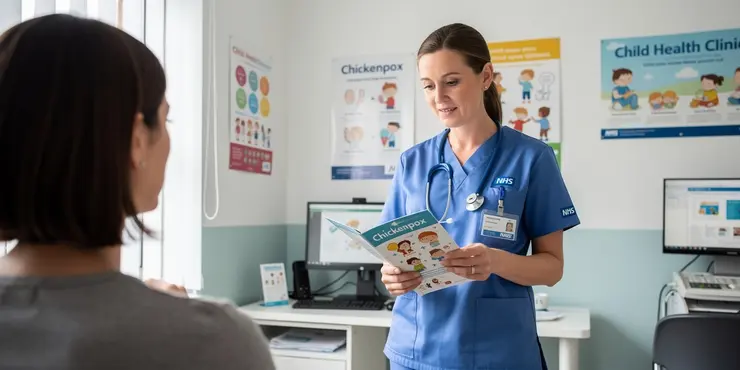
How is chickenpox spread?
Relevance: 45%
-
Can pregnant women get chickenpox?
Relevance: 45%
-
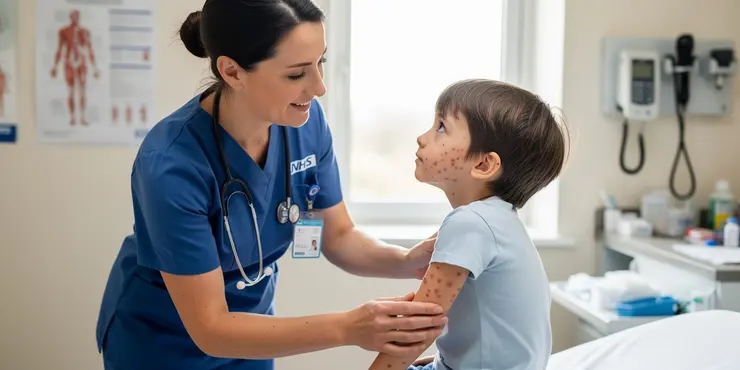
How long does chickenpox last?
Relevance: 45%
-
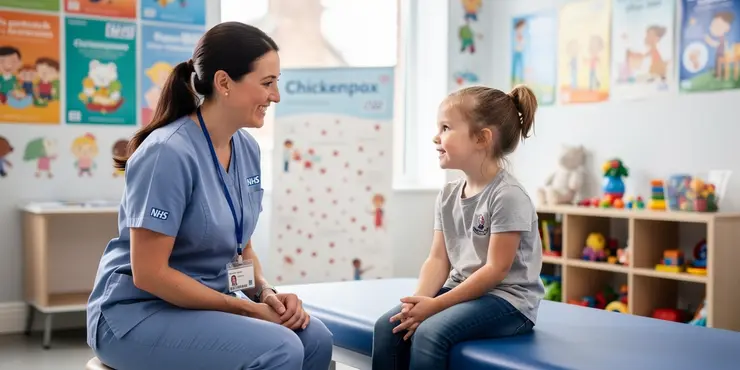
Common health questions about chickenpox | NHS
Relevance: 45%
-
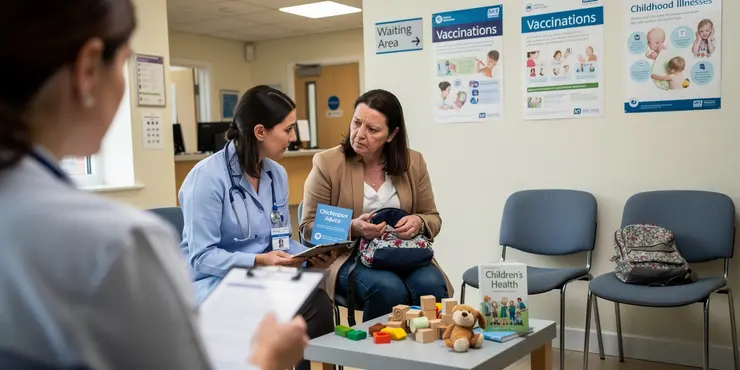
Is it safe to use aspirin to treat chickenpox symptoms?
Relevance: 44%
-
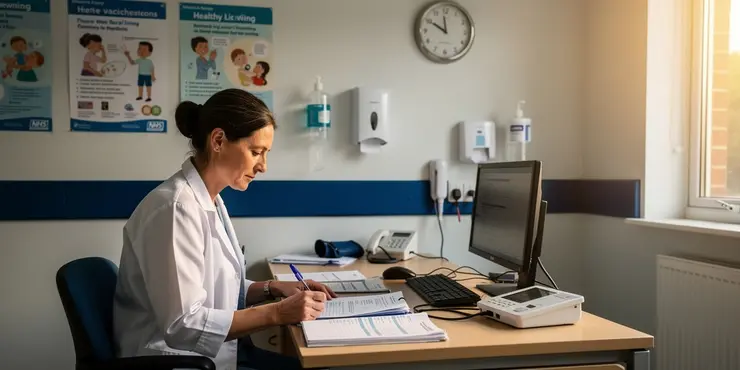
Can adults get chickenpox?
Relevance: 44%
-
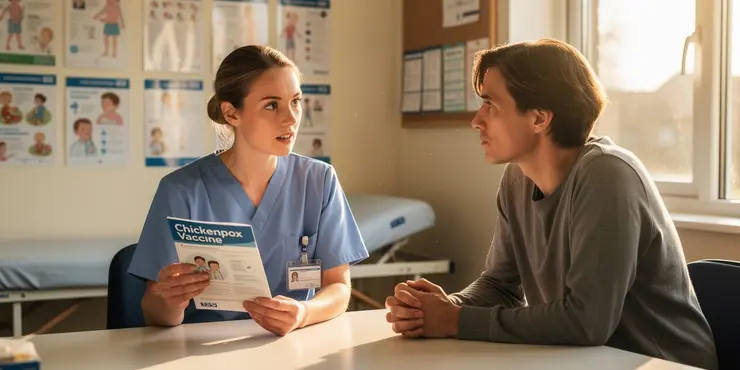
Who should get the chickenpox vaccine?
Relevance: 42%
-
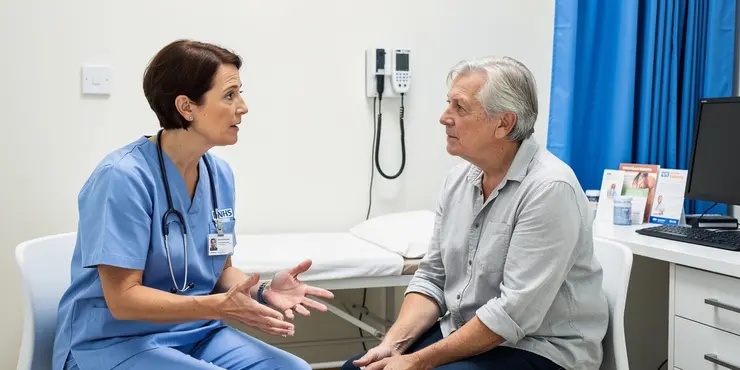
Can the shingles vaccine cause chickenpox?
Relevance: 41%
-
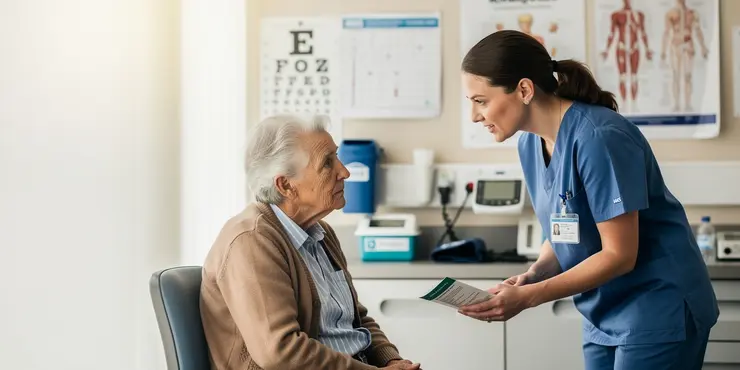
Can the shingles vaccine cause chickenpox?
Relevance: 41%
-
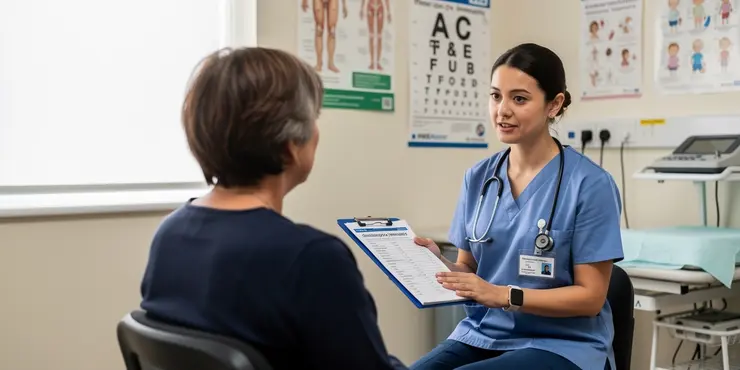
Can you get chickenpox more than once?
Relevance: 40%
-
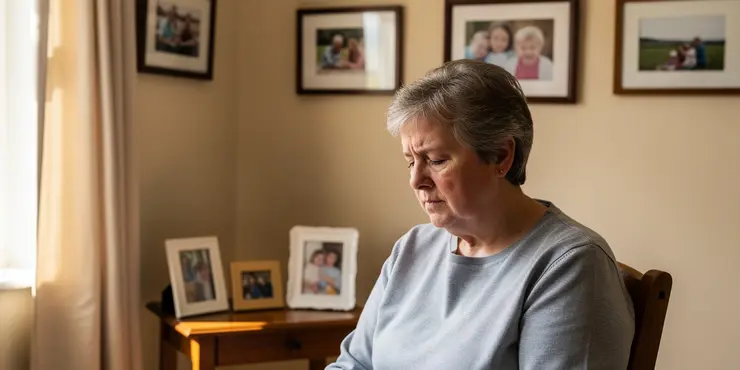
Child Bereavement
Relevance: 38%
-

Is screening painful or risky for my child?
Relevance: 37%
-
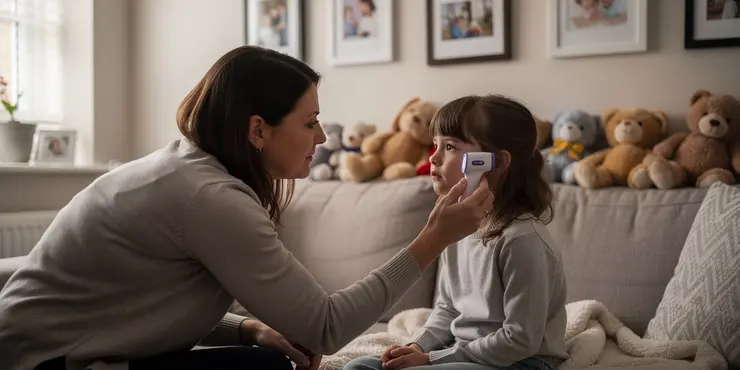
Caring for a child with fever | NHS
Relevance: 36%
-
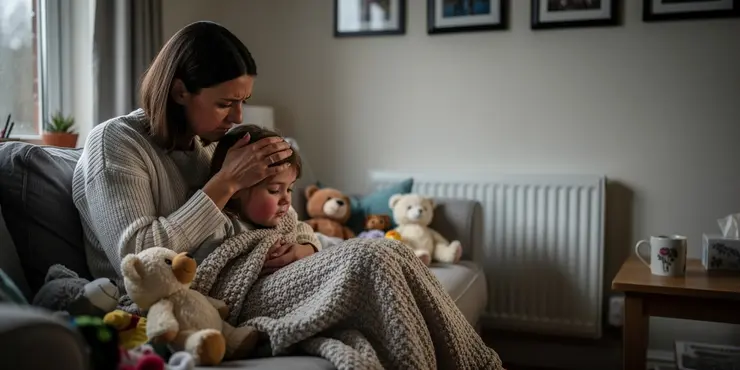
Advice if your child has... A High temperature
Relevance: 35%
-
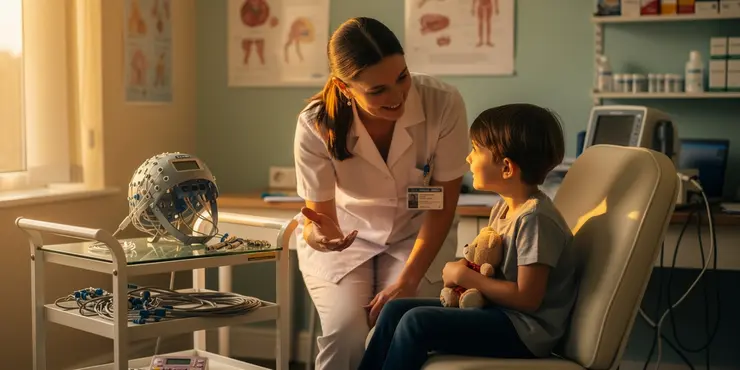
What happens when my child has an EEG?
Relevance: 35%
-
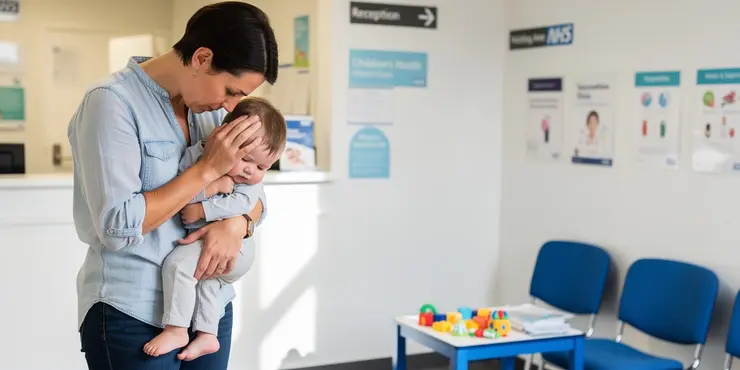
How do I treat my child's cold? (9 - 30 months) | NHS
Relevance: 35%
-
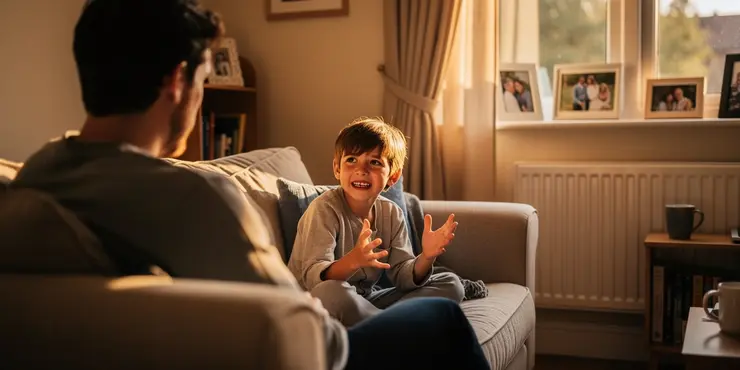
My Stammering Child
Relevance: 34%
-
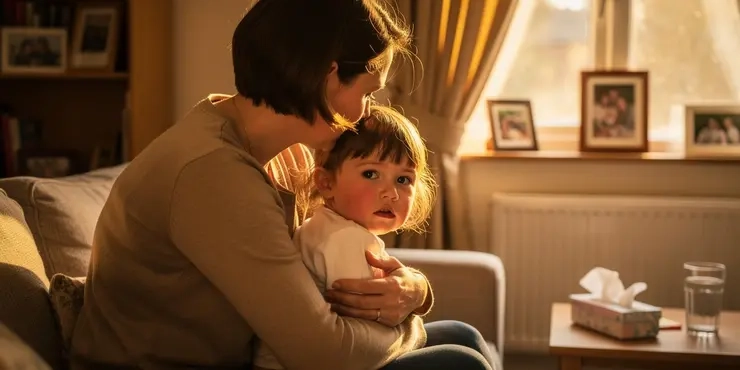
What to do when your child has... croup
Relevance: 32%
-

What if I'm not comfortable applying online for a Time to Pay arrangement?
Relevance: 32%
-

Should I limit my child's internet usage to prevent grooming?
Relevance: 32%
-

How can I educate my child to recognize grooming behaviors?
Relevance: 31%
-
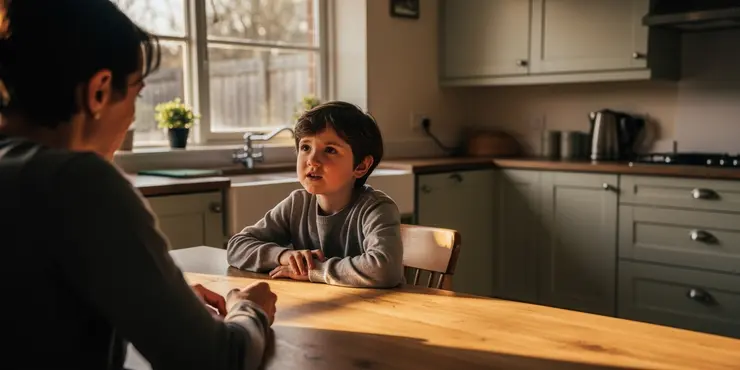
Navigating Child Custody Laws in the UK
Relevance: 31%
-
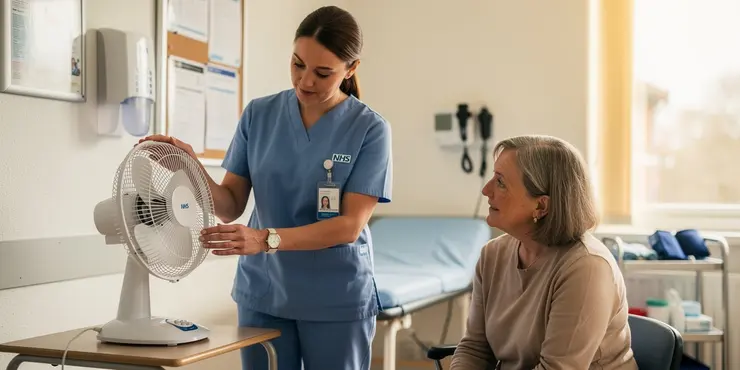
How can I sleep comfortably during a heatwave?
Relevance: 30%
-

How can I tell if my child is being groomed?
Relevance: 30%
-
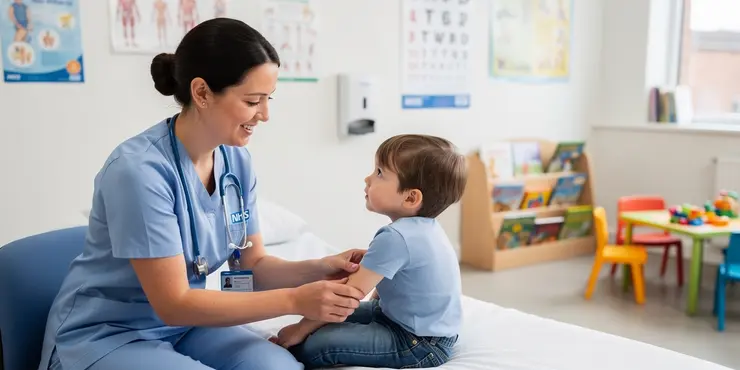
How long is the incubation period for chickenpox?
Relevance: 30%
-
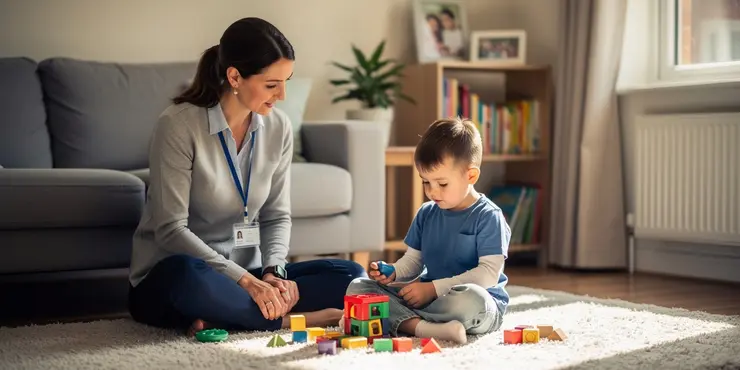
Child Care Proceedings | Family Law
Relevance: 30%
-
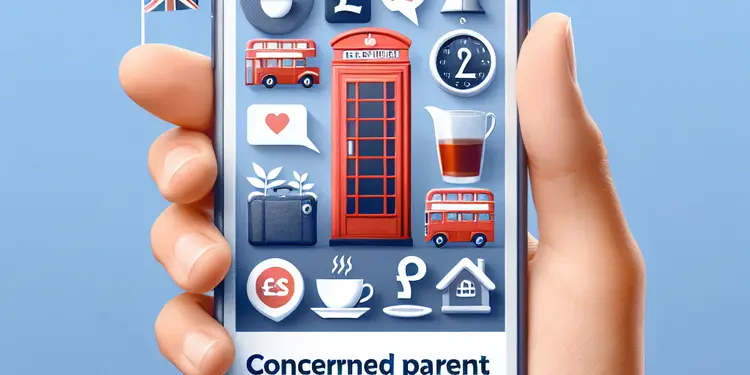
What should I do if I suspect my child is being groomed?
Relevance: 29%
-
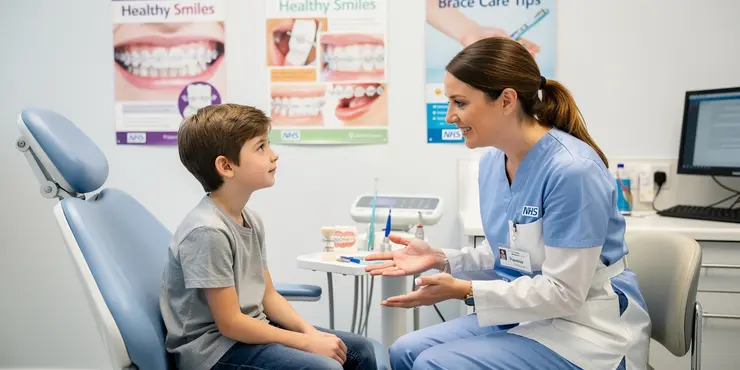
Can my child get braces on the NHS?
Relevance: 29%
-
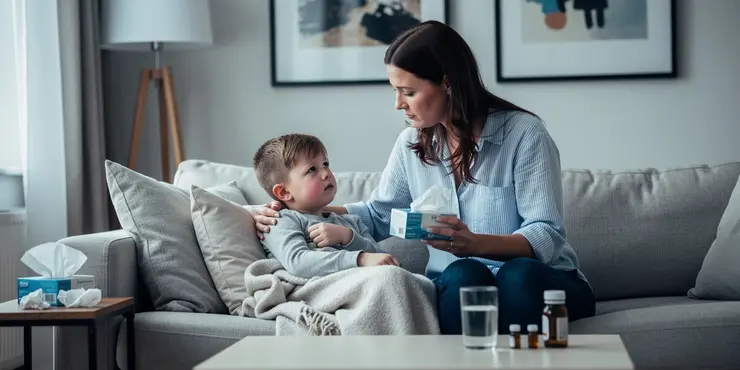
Dealing with Common Childhood Illnesses
Relevance: 29%
-
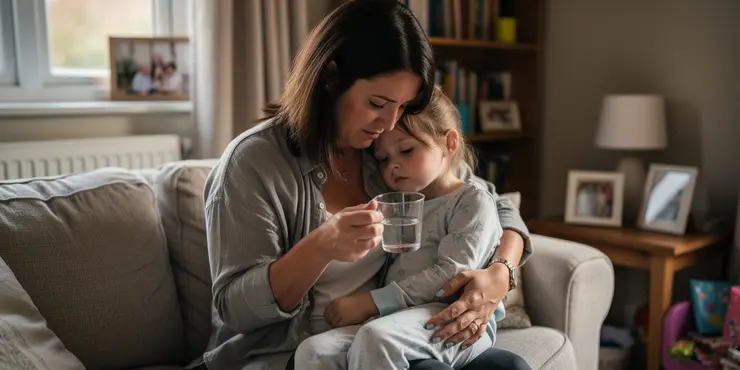
My child has vomiting and diarrhoea - what do I do?
Relevance: 29%
-
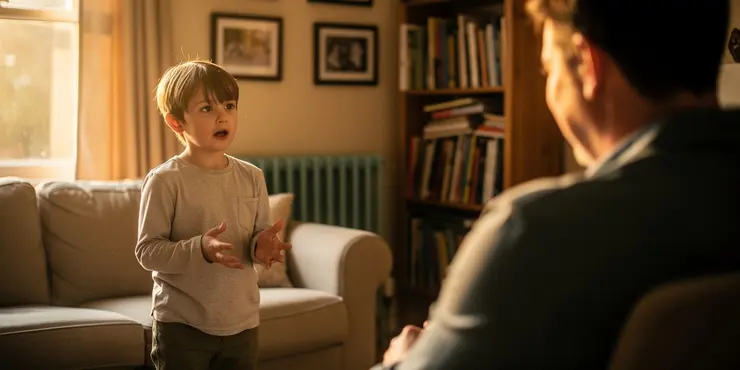
Stammering myth 4: You should ignore a child's stammer
Relevance: 29%
How to Keep a Child With Chickenpox Comfortable
Maintain a Comfortable Resting Environment
Ensuring your child has a restful and calm environment is crucial. Keep the room cool, as heat can increase itchiness. Use lightweight clothing and soft, breathable sheets to help them stay comfortable. Encourage frequent resting by providing books, puzzles, and quiet activities to keep them occupied without overexerting themselves.
Relieve Itching with Topical Treatments
Itching can be particularly distressing for children with chickenpox. Use calamine lotion or over-the-counter hydrocortisone cream to soothe the skin. Oatmeal baths can also provide relief; simply add a cup of colloidal oatmeal to a lukewarm bath and let your child soak for about 15-20 minutes. Pat the skin dry gently afterwards to avoid irritation.
Maintain a Gentle Skincare Routine
When dealing with blisters and sores, maintaining a gentle skincare routine is essential. Bathe your child daily in lukewarm water using mild, fragrance-free soap. Avoid picking or scratching the blisters as this can lead to scarring and secondary bacterial infections. Keep their nails trimmed short to reduce the risk of scratching.
Keep Hydrated and Well-Nourished
Hydration is key to recovery. Ensure your child drinks plenty of fluids such as water, diluted fruit juices, and herbal teas. If they have sores in their mouth, avoid acidic or spicy foods that may cause discomfort. Offer soft, bland foods like porridge, bananas, and yogurt.
Monitor Fever and Pain
Chickenpox often comes with fever and discomfort. Use paracetamol (acetaminophen) to manage fever and pain, but avoid giving ibuprofen, as it can increase the risk of severe skin reactions in children with chickenpox. Always follow dosing instructions and consult your GP before administering any medication.
Prevent Secondary Infections
To prevent secondary infections, teach your child the importance of good hand hygiene. Make sure they wash their hands regularly and avoid sharing personal items like towels and clothes. Keep an eye out for any signs of infection, such as increased redness or pus in the blisters, and contact your healthcare provider if you notice these symptoms.
Seek Medical Advice When Necessary
While chickenpox is generally a mild illness, it's important to be aware of any complications. If your child is experiencing difficulty breathing, persistent high fever, or severe headaches, seek medical advice promptly. Additionally, if your child has a compromised immune system or is under one year old, contact your GP for further guidance.
By following these tips, you can help your child feel more comfortable and supported during their bout with chickenpox, ensuring a smoother and less distressing recovery process.
How to Help a Child with Chickenpox Feel Better
Create a Comfy Place to Rest
It's important for your child to rest in a calm and cozy space. Keep their room cool because being too warm can make itching worse. Dress them in light clothes and use soft sheets. Give them books, puzzles, and quiet games so they can relax and not get too tired.
Stop Itching with Lotions
Itching can bother kids a lot when they have chickenpox. You can use calamine lotion or special cream from the pharmacy to calm the skin. Try giving them a bath with oatmeal in it. Add a cup of oatmeal to warm water and have your child soak for 15-20 minutes. Gently pat their skin dry after the bath.
Take Care of the Skin Carefully
Chickenpox gives blisters and spots that need gentle care. Bathe your child every day using mild soap without strong smells. Don’t let them pick or scratch the blisters. This can cause scars and more infections. Keep their nails short so they can scratch less.
Make Sure They Drink and Eat Well
Drinking lots of fluids is very important. Give your child water, watered-down fruit juice, and herbal tea. If they have sores in their mouth, avoid giving them sour or spicy foods. Offer soft foods like porridge, bananas, and yogurt that are easy to eat.
Watch Their Fever and Pain
Chickenpox can cause fever and make your child feel unwell. You can give them paracetamol to help with pain and fever. Do not give them ibuprofen because it can cause more skin problems. Always read the instructions and ask your doctor if you're unsure.
Stop Other Infections
Teach your child to wash their hands often to stop infections. Don't let them share towels or clothes. Watch for signs of an infection like extra redness or pus in the spots. If you see these, call your doctor.
Ask a Doctor When Needed
Chickenpox is usually a mild illness, but watch for any serious signs. If your child has trouble breathing, a high fever that doesn’t go away, or a bad headache, see a doctor right away. Also, if your child has a weak immune system or is under one year old, talk to your doctor for advice.
By following these tips, you can help your child feel better and recover smoothly from chickenpox.
Frequently Asked Questions
What is the most important thing to do when my child has chickenpox?
Ensure they get plenty of rest and stay hydrated. Adequate rest helps their body fight the infection more efficiently.
How can I reduce my child's fever safely?
You can give them paracetamol to manage fever. Avoid giving aspirin, as it can lead to serious complications in children with chickenpox.
What can I do to relieve my child's itching?
Use calamine lotion or antihistamines to soothe itching. Keeping their nails short can also help prevent scratching and subsequent infections.
Are there specific foods my child should eat during chickenpox?
Offer them soft foods and plenty of fluids to keep them nourished. Avoid acidic or salty foods, which can irritate mouth sores if any are present.
What type of clothing should my child wear?
Dress them in loose, comfortable clothing made of breathable fabrics like cotton to avoid irritation of the blisters and skin.
Can my child take a bath while having chickenpox?
Yes, giving them regular lukewarm baths with added baking soda or colloidal oatmeal can help soothe their skin. Always pat dry gently.
Should I keep my child away from school?
Yes, keep them home from school and other group activities until all the chickenpox blisters have crusted over, which usually takes about 5-7 days from when the rash first appears.
Is it okay to let my child play outside?
As long as they feel well enough and avoid direct sunlight, which can exacerbate itching. Ensure they avoid close contact with others to prevent spreading the virus.
When should I call a doctor during my child's chickenpox?
Seek medical advice if your child develops a high fever, difficulty breathing, signs of a secondary bacterial infection, or if they seem unusually lethargic.
Can my child use over-the-counter pain relievers?
Paracetamol is safe, but avoid ibuprofen as it can increase the risk of severe skin infections in children with chickenpox.
How can I prevent my child from scratching the blisters?
Keep their nails trimmed short, consider using mittens or gloves if necessary, and use anti-itch treatments to reduce discomfort.
Is there a vaccine for chickenpox?
Yes, the chickenpox vaccine is available and recommended as part of the childhood vaccination schedule in the UK. It is not part of the routine NHS vaccination, but it can be given privately.
What should I do if my child has a severe case of chickenpox?
Contact your GP for advice. In severe cases, antiviral medications may be prescribed to reduce the severity and duration of symptoms.
Can adults catch chickenpox from children?
Yes, adults who have never had chickenpox or the vaccine can catch it from an infected child. Chickenpox tends to be more severe in adults.
What precautions should I take if I have other children at home?
Keep the infected child isolated as much as possible, practice good hand hygiene, and ensure that other children are up-to-date on their chickenpox vaccinations.
What should I do if my child has chickenpox?
If your child has chickenpox, here is what you can do:
- Keep your child at home so they can rest.
- Make sure they drink lots of water.
- Help them with the itchy spots by putting on cream or giving them an oatmeal bath.
- Ask a doctor if you need any medicine to help them feel better.
These steps can help your child feel comfortable.
Make sure they get lots of sleep and drink plenty of water. Sleeping helps their body get better faster.
How can I safely lower my child's fever?
A fever is when the body is hotter than usual. Here are some ways to help your child feel better:
- Give them lots of water to drink. It helps keep them cool.
- Dress them in light clothes. This helps cool their body.
- Use a fan to keep the air moving. This can feel nice and cool.
- Give them medicine like paracetamol if they feel very hot and uncomfortable. Ask a doctor or pharmacist how much to give.
If you are worried or the fever lasts a long time, talk to a doctor. They can help you know what to do.
Here are some tools you can use:
- A thermometer to check their temperature.
- A measuring spoon or cup to give the right amount of medicine.
You can give them medicine called paracetamol to help with a fever. Do not give them aspirin because it can cause serious problems if a child has chickenpox.
How can I help my child stop itching?
Here are some ways to help your child:
- Use a cool, wet cloth on the itchy area.
- Make sure your child wears loose, soft clothes.
- Keep your child's skin moist with lotion.
- Help your child not to scratch by keeping their nails short.
- Ask a doctor or pharmacist for creams or medicines that can help.
- Distract your child with fun activities or toys.
If you need more help, talk to your doctor.
Try using calamine lotion or special medicine to stop itching. Keep nails short to stop scratching and getting germs.
What foods should my child eat when they have chickenpox?
When your child has chickenpox, there are foods that can help them feel better.
Soft Foods: Give them soft foods like yogurt, mashed potatoes, and soup. These are easy to eat if they have sores in their mouth.
Cold Treats: Cold treats like ice cream and popsicles can help soothe a sore mouth and throat.
Drink Water: Make sure your child drinks lots of water. Staying hydrated is important.
You can try using picture cards to show your child what foods they can eat. This can make it easier for them to choose what they want.
Give them soft foods to eat and lots of drinks to keep them healthy. Stay away from foods that are sour or salty, because these can hurt if they have any sores in their mouth.
What clothes should my child wear?
Pick comfy clothes that your child can move in. Choose clothes that fit well and feel good.
Think about the weather. Wear warm clothes when it's cold. Wear cool clothes when it's hot.
Let your child pick colors and styles they like. This helps them feel happy about their clothes.
Label clothes with your child's name, so they don't get lost.
Use picture charts to help your child choose clothes. This makes it easier for them.
Put them in loose, comfy clothes made from soft materials like cotton. This helps stop blisters and skin from getting sore.
Can my child have a bath with chickenpox?
Yes, giving them warm baths can help make their skin feel better. Add some baking soda or special oatmeal to the water. Always dry them gently with a towel.
Is It Okay to Keep My Child Home from School?
Yes, keep your child at home from school and other group activities. Wait until all the chickenpox spots have scabbed over. This usually takes about 5 to 7 days from when you first see the spots.
Can my child play outside?
If they feel okay, they should stay away from the sun so their skin doesn't get more itchy. They should also keep away from other people so they don't share the virus.
When should I call a doctor if my child has chickenpox?
If your child has chickenpox, call the doctor if you notice:
- Your child is very sleepy or hard to wake up.
- Your child is having trouble breathing.
- Your child has a very high fever.
- The chickenpox spots look infected (red and sore).
- Your child is not drinking or eating.
You can also:
- Use simple words to talk to your child about chickenpox.
- Help your child rest and drink fluids.
- Use drawings or toys to explain what is happening.
Ask the doctor for help if your child:
- Has a very high fever.
- Finds it hard to breathe.
- Shows signs of another infection.
- Seems very sleepy or tired.
Can my child take medicine for pain from the store?
It is safe to take paracetamol. Do not take ibuprofen, because it can make skin infections worse for children who have chickenpox.
How can I stop my child from scratching the blisters?
If your child has blisters, it is important to stop them from scratching. Scratching can make the blisters hurt more or get infected.
Here are some ways to help your child:
- Let them wear soft gloves or mittens. This can stop them from scratching.
- Keep their nails short and clean, so they do not hurt themselves.
- Distract them with toys or fun activities. This helps them forget about the itching.
- Use a special cream or lotion that the doctor gives you. This can make the itching feel better.
Ask your doctor for more tips if your child finds it hard to stop scratching.
Keep their nails short. If needed, put mittens or gloves on them. Use creams or lotions that help with itching. This can make them feel better.
Can a vaccine stop chickenpox?
Yes, there is. A vaccine can stop you from getting chickenpox. A vaccine is like a shield. It helps your body fight the chickenpox virus.
It is good to talk to a doctor or nurse. They can tell you if you need the vaccine. You can also ask a family member for help.
Yes, there is a chickenpox shot that kids in the UK can get. It is part of the shots they get when they are little. It is not usually free from the NHS, but you can pay for it yourself.
What if my child has really bad chickenpox?
Talk to your doctor for help. If you are very sick, medicine might be given to make you feel better sooner.
Can grown-ups get chickenpox from kids?
Yes, grown-ups can get chickenpox from kids. Chickenpox is a sickness with itchy spots.
Here are some tips to help you:
- Ask a friend or family member to read with you.
- Use apps that can read text out loud.
- Use a highlighter to mark key points.
If a grown-up has never had chickenpox or the chickenpox shot, they can get sick from a child who has chickenpox. Chickenpox can make grown-ups feel a lot sicker than kids.
What should I do to keep all my children safe at home?
If you have other children at home, here are some simple steps to keep everyone safe:
- Explain to your children how to stay safe and why it's important.
- Make sure your home is clean and wash hands often.
- Keep things that can hurt children out of their reach.
- If a child is sick, let them rest in a separate room if you can.
- Ask a grown-up you trust if you need help.
You can use picture charts or easy videos to learn more about safety at home. These tools can make learning fun and easy.
Keep the sick child away from others as much as you can. Wash hands well and often. Make sure other kids have their chickenpox shots. You might find a picture chart or a song about handwashing helpful for kids.
Useful Links
This website offers general information and is not a substitute for professional advice.
Always seek guidance from qualified professionals.
If you have any medical concerns or need urgent help, contact a healthcare professional or emergency services immediately.
Some of this content was generated with AI assistance. We’ve done our best to keep it accurate, helpful, and human-friendly.
- Ergsy carfully checks the information in the videos we provide here.
- Videos shown by Youtube after a video has completed, have NOT been reviewed by ERGSY.
- To view, click the arrow in centre of video.
- Most of the videos you find here will have subtitles and/or closed captions available.
- You may need to turn these on, and choose your preferred language.
- Go to the video you'd like to watch.
- If closed captions (CC) are available, settings will be visible on the bottom right of the video player.
- To turn on Captions, click settings .
- To turn off Captions, click settings again.
More Items From Ergsy search
-

How to Keep a Child With Chickenpox Comfortable
Relevance: 100%
-

What is the treatment for chickenpox?
Relevance: 50%
-

What is Chickenpox?
Relevance: 49%
-

Are there home remedies for chickenpox?
Relevance: 49%
-

Can chickenpox be prevented?
Relevance: 49%
-

What are the symptoms of chickenpox?
Relevance: 48%
-

Is chickenpox contagious?
Relevance: 48%
-

What are the complications of chickenpox?
Relevance: 47%
-

Should I get the chickenpox vaccine?
Relevance: 47%
-

How is chickenpox spread?
Relevance: 45%
-
Can pregnant women get chickenpox?
Relevance: 45%
-

How long does chickenpox last?
Relevance: 45%
-

Common health questions about chickenpox | NHS
Relevance: 45%
-

Is it safe to use aspirin to treat chickenpox symptoms?
Relevance: 44%
-

Can adults get chickenpox?
Relevance: 44%
-

Who should get the chickenpox vaccine?
Relevance: 42%
-

Can the shingles vaccine cause chickenpox?
Relevance: 41%
-

Can the shingles vaccine cause chickenpox?
Relevance: 41%
-

Can you get chickenpox more than once?
Relevance: 40%
-

Child Bereavement
Relevance: 38%
-

Is screening painful or risky for my child?
Relevance: 37%
-

Caring for a child with fever | NHS
Relevance: 36%
-

Advice if your child has... A High temperature
Relevance: 35%
-

What happens when my child has an EEG?
Relevance: 35%
-

How do I treat my child's cold? (9 - 30 months) | NHS
Relevance: 35%
-

My Stammering Child
Relevance: 34%
-

What to do when your child has... croup
Relevance: 32%
-

What if I'm not comfortable applying online for a Time to Pay arrangement?
Relevance: 32%
-

Should I limit my child's internet usage to prevent grooming?
Relevance: 32%
-

How can I educate my child to recognize grooming behaviors?
Relevance: 31%
-

Navigating Child Custody Laws in the UK
Relevance: 31%
-

How can I sleep comfortably during a heatwave?
Relevance: 30%
-

How can I tell if my child is being groomed?
Relevance: 30%
-

How long is the incubation period for chickenpox?
Relevance: 30%
-

Child Care Proceedings | Family Law
Relevance: 30%
-

What should I do if I suspect my child is being groomed?
Relevance: 29%
-

Can my child get braces on the NHS?
Relevance: 29%
-

Dealing with Common Childhood Illnesses
Relevance: 29%
-

My child has vomiting and diarrhoea - what do I do?
Relevance: 29%
-

Stammering myth 4: You should ignore a child's stammer
Relevance: 29%


